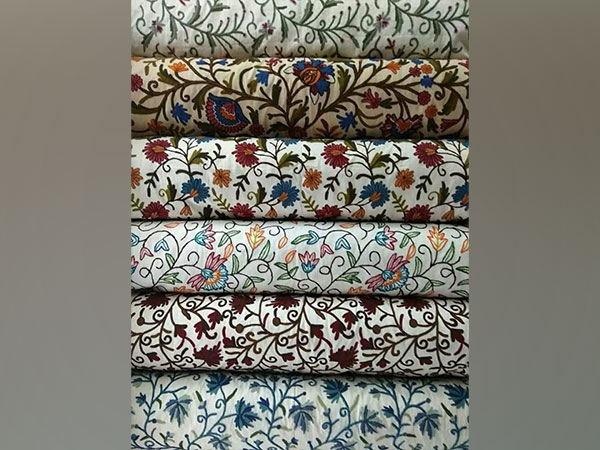Nearly 200 women artisans from the Noorbagh area of Srinagar have come together to establish their company, “Noori Ari Craft Producers Company Limited,” showcasing their traditional Ari embroidery skills to both domestic and global markets.
Rooted in centuries-old Ari embroidery techniques, these artisans have embarked on a journey of empowerment. What began as a passion for traditional craftsmanship has blossomed into a thriving enterprise, thanks to their perseverance and support from Rangsutra Crafts India Limited, the Jammu and Kashmir Government, and the World Bank.
The company not only showcases their exquisite skills to domestic and global markets but also ensures fair compensation through direct sales. This direct approach has eliminated middlemen, allowing earnings to be deposited directly into the artisans’ bank accounts-a significant shift that has brought stability and financial security to many, like Sahiba, a single mother and board member whose livelihood has been transformed.
“After years of uncertainty about where our products ended up, direct sales have given us full traceability and control over our earnings,” she said.
The company, overseen by a board of five directors and supported by a team of 16 members, manages a diverse product line. From intricately designed suits and shawls to elegant curtains and bed covers, each piece is a testament to the fusion of tradition and contemporary flair.
Masrat, a manager at Noori, elaborated on the impact the company is having on the lives of the women it has trained over the past four years. “We have trained nearly 600 women, equipping them with new design techniques and color combinations that depart from traditional norms. This training has been pivotal in empowering these women economically,” she said
Shumita Ghosh, founder and managing director of Rangsutra Crafts India Limited, emphasized the company’s main aim of ensuring sustainable livelihoods for women artisans. “Through workshops and market insights, we have helped them enhance product quality and expand their market reach,” she said.
Ghosh highlighted their efforts in conducting workshops and exposure trips to Delhi and Mumbai over the past four years to familiarize artisans with market requirements and improve their products.
Ghosh added that the demand for Kashmiri artisans’ Ari crewel embroidery remains strong, both locally and globally, emphasizing the need for more artisans to join the group.
“We will remain in touch with these artisans, helping them develop new products and fulfill orders,” she said.
Arifa Irshad, an artisan involved in Ari embroidery work, underscored the need for continued Governmental support. “Previously, we struggled with middlemen who often delayed or underpaid us for our work. Now, with direct sales, we have more stability and fairness in our earnings. The Government should prioritize quality assessments and actively promote handmade products, especially by restricting the presence of machine-made items at exhibitions,” she said.

